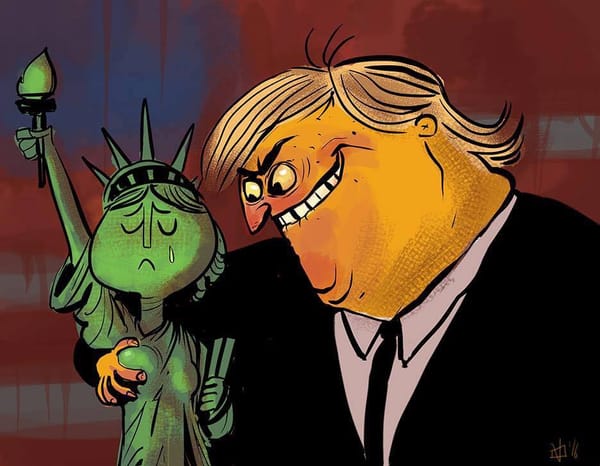We should not astonishingly celebrate a surprise party
It is a typical day with dark clouds brought over in the afternoon. The clouds carrying moisture, at the height of the rainy season, would be always accumulative enough to eat away saturating air and fall down in torrents of stormwater off to the complicated system of streams and creeks up and down the hills, making the water resource in this land cyclically refreshened and replenishable and the hydrological condition still functional for the growth of nature and livelihoods. However, as days go by, less and less moisture accrues, and sometimes clouds disperse before rainfall occurs. Up to a point when moisture accumulation is no longer adequate to come cross the saturation threshold of the air, the rainy monsoon will be altered by the long dry days with no rain. But we might be only halfway through the rainy season at this Height. Sometimes, I contemplate the unquantifiable connections between biodiversity and livelihoods in this land. Biodiversity is a safeguard of land sustainability, but new industrial activities emerge on the rural town and land clearance made for farming. Biodiversity clearly took a toll for increasing the "capitals" of livelihoods. But eventually, whether the livelihoods would take a toll on the biodiversity loss it remains a question in a land poorly planned on the short-sighted ludicrous interests of the provincial top leaders, which led to the development of such poorly regulated industrial activities in such a volume exceeding the biodiversity toleration. A small town still needs proper planning, no matter how small it would be. It would not govern on its own. In the way it currently goes, any incident to biodiversity and any change might become unmanageably accidental that the landlocked provincial governors might not realise or it might be never of their interests.
Sunday brought back joy and revival, as the all-week-round restless construction site has turned frozen with tools down with lighting still on leaving the dust and foggy particles visible in the air and on the window panes. Sitting inside the container retrofitted into human occupancy, I flipped back to the readings of previous arguments against communism. It might be commonplace to attribute anti-communism to the Hayekian arguments that communism, is a form of collectivist mega-project (economically speaking command economy) that was fueled by human rights sacrifices. Such a mega project is hardly founded on the majority's consensus, although it might bear a resemblance to "people's will", which is vaguely defined. And it was later abused by a small coterie of autocrats wielding power, or in some cases a megalomaniac guy for their corrupt intents and purposes. In the meantime, capitalism, set as opposed to communism, widely regarded then as an antithesis to communism, was described as no angels, however brings about a sense of pragmatism. Capitalistic societies, as it went, were individualistic by nature, and had no commitments of megaprojects, founded on the respect of human rights and personal liberties. Of course, this contrastive dichotomy is reflective of something sensible in its own time, and might be narrowly accurate in its own contextual meaning. It was though lacking senses when being deployed to argue against the modern communism which still currently rules Vietnamese society.
The communist party as we know as rulers in Vietnam is no longer committed to any collectivistic megaproject. It was disbanded and diminished into segments of kleptocrats, thugs, and quasi-mafias who rob our national wealth and throttle people's basic rights by force for their guarantees of power. What an argument is needed to square against the troops of thugs? But capitalism does not equate with the democracy we are striving for either, as our democracy uses economic freedom and market principles as the means to advance human rights, cooperation, and creativity. What is at stake though, is universal rights, individual rights to the pursuit of happiness and having control of their lives in their hand. Not the relentless pursuit of "capital" or expansion of the markets at the expense of rising inequality, environmental degradation, or deteriorating living quality among the working class. In other words, we don't function democratically within capitalistic societies. But we let the capital work for a more equal, inclusive, and democratic society. As practically governed as it is, the democrats would not be hell bent on the scepticism of the political projects. While there's no wishes for the sort of collectivistic mega projects which were built on the blood and bones of the working proletariats who toil themselves under the sunburnt of "state-owned" factories, and plantations; which were abused by the leaders to strike their economic models as superior to the West for being able to generate record-high productions, and sometimes used as fuels for their war machinery from the back line. Nonetheless, the democrats should not be fearful of the idea of having a national political project.
In actual governance of a city, for example, it would not be "practical" to let a city go wild "with full capitalism". It would require considerate spatial planning including regulated land use, standardization of transportation, drainage and sewage systems, or real estate development. What if the democratic representatives campaign for a "better future" case without a proper project, or at the least, a common language of political discourse, understandable and recognizable for the ordinary people? Little do our democratic representatives recognise that our political success depends largely on how to plan for a functional democracy in the voids and gaps to be filled in the post-communist period. Having a political project is not merely a filling material, but a creative substances for the new society in a way it would be not adequate to "fill up" the gaps following the destruction of the cultural and political agents of the fallen authoritarian rule with just something sounding "democratic", but creating our own institutions and agents capable of functioning and delivering the democratic values to the wider society. The premise that if the communist regime falls, then everything is comparable with the demagoguery of "if I'm elected, then everything" (even though I'm not sure of what the hell I plan for what I offer. A political project offers a seamless connection between political ideals and what we practically do to deliver the ideals we stand for or at least how it relates to the aspirations of millions of people in this country. We plan for every little task, why there is so much backtracking from planning and organising for political change.
The Vietnamese politics of the present day is characterised by the seizure of power by the former police boss who managed to take the whole establishment of the party hostage. Seen more interference of the military leaders into civil politics. Shrouded with mysteries, the current political climate is filled up with sheer violence and coercion. But remaining is a question to be begged whether the new rulers could struggle their way through society in need of more freedom, civil society space, and openness or whether it has been a moment of realisation from the new rulers that any toughness or opposition towards the "open-up of anything" would lead to terrible short-circuiting and the terrible aftermaths. To Lam, in his speech in Vietnam's Independence Day made no celebrations about his party's feats of usurping power and rose to the public knowledge from a little-known political band in on a rare chance of global upheavals following the end of the World War. The sudden bizarre seizure of power in a time of uncertainty and anxiety to some certain extent is somewhat relatable to his personal rise to power. To one's surprise, he made no such celebration or attempt to repeat the old propaganda. He instead softens the language to call for more integration into the global economy and adherence to international institutions. Might it be the foreseeing of upcoming defeats or the realisation of how vulnerable his sudden rise into the top of a house of cards would be?
No matter what, there is something irreversible about the democratisation of Vietnam and societies around the world. It would be strange to see very the vague presence of the democratic force in Vietnam. It would be an oxymoron that a potentially relatable force struggles to relate themselves to the dimensions of our society. It remains to be discussed whether the democratic fighters in Vietnam would proactively control the transition process or let the process be turned over and usurped by few opportunists. We came to know the success stories of democratic transitions, and triumphant moments which would finally come in Eastern Europe. But we are aware that democratic triumph is a moment of short-moment reactions on the surface, and democratic backsliding would be waiting at the door sill. There is a clear line between a short-reacted moment of democracy and democratic work involving the building of new institutions and agents, establishing true political discourses and civility, and making advances towards a more democratic political culture. More to it, not every Vietnamese democrat realise that failure in democratic transitions always start with the democratic representation struggle to understand the zeitgeist of the time, or see their opportunities in the foresight. Most of them are fragmented among the civil rights groups and struggle to relate themselves to a society whose direction goes beyond their comprehension. Democracy comes over as a moment of surprise, and the assuming representatives of democracy get dragged along rather than controlling the process. At the end of the day, the fight for democracy is concerned with serious planning and organising around a political project rather than a task of joining a surprise party and celebration.
It is interesting to see new developments of the mysterious party politics, always shrouded with secrecy and how things break out. The democratic future in Vietnam, though lies in the fragmented invisible democrats and democracy advocates in Vietnam's society. Whether they choose to be dragged along the movement, or control the process by active work of planning and organizing for political change. Our democrats might be greatly worried to see there is no current political organisation sizable enough in our country. But if a nation is a community of imagination in the sense that it is perceivable to us through ideas and common sense of our existence. What makes ours perceivable to the wider society is having a political organisation whose ideas and principles are detailed enough to chart a clear path, ambitious enough to be attractive to the minority of visionaries, and tolerant and universal enough to be widely accepted. Such an organisation might already existed in our society and waiting for us the democrats to gear up the wheel of history.
(Shaun 1-September-2024)


